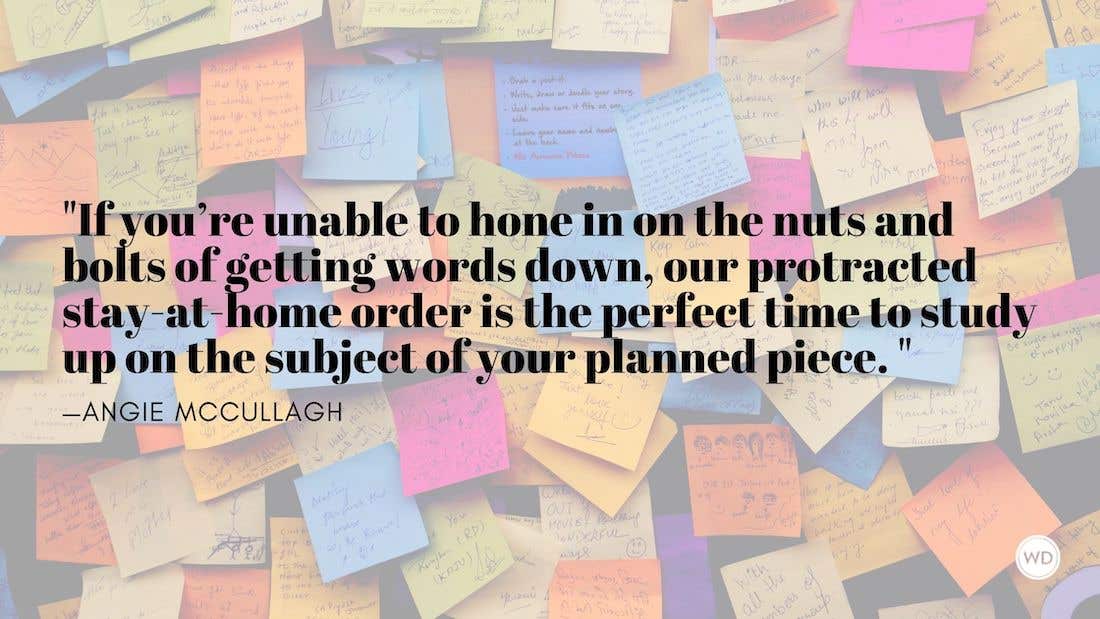There I Am: Is Your Need for External Validation Holding Back Your Imagination?
It can be impossible to write and worry about what other people will think of your work. Here, William Kenower offers thoughts on overcoming the need to focus on those external opinions.
I had some oral surgery recently. A tooth had begun to rot and needed to be replaced with a steel post in my gums and a crown. A week after the procedure I had a follow up with my surgeon to have my stitches removed and make sure my mouth was healing properly. That it was healing properly was not a sure thing. I had been running a fever for a few days before the visit that I feared was consequence of an infection around the post. I’d tried examining my own mouth in the bathroom mirror, but it just looked ugly the way mouths do when you get too close.
The day of the visit I leaned back in the chair and opened wide for the verdict. The surgeon leaned in, squinted, and nodded with professional approval. “You are healing beautifully.”
In rapid succession I felt relief, followed immediately by mild pride that my mouth was exceptional in some way. Surely not everyone’s mouth would heal beautifully; some mouths might only heal adequately.
Such are the lengths my psyche will go to when it has grown hungry for validation and praise. It’s a natural reaction, I think, to worrying that something is wrong with me, even if that something is just a low-grade infection. As a writer, I have ridden the rollercoaster of despair and pride for many years. So much of a writer’s life can seem dependant on other people’s approval, whether those other people are your writing group, your agent, or a reviewer for the New York Times. So much of a writer’s life can be spent waiting to hear from those other people, suspended in a kind of purgatory until the eyes of the reading public look down into your story and pass their verdict.
It’s a terrible way to live, frankly. Fortunately, it is simply impossible to write and worry about what other people will think of my work. Though it took me a while, I have trained myself to forget about those other people and their squinty, reading eyes so that I can sink into the dream of whatever story I want to tell. What a relief. No matter how many times I sink into that dream, no matter how many times I release my grip on what I sometimes call reality and let myself be carried along the swift current of my imagination and curiosity, there is always a moment when I appreciate as if for the first time the freedom and natural confidence that always comes from following what interests me most. I cannot imagine a day when I will grow tired of this experience any more than I can imagine a day when I will grow tired of being alive.
It’s worth remembering because writers sometimes believe that what happens at the desk is somehow discrete and removed from the rest of their life. It’s just a craft, and has no more connection to say, parenting, than knitting has to swimming. Except nothing that happens while writing is in anyway removed from the rest of my life. I do not stop being a complete human being simply because I’m writing. All my basic human concerns about value, and intelligence, and success, and failure, and desirability come with me to the desk, just as they come with me to the dinner table and the grocery store. For this reason, most of the challenges writers face have nothing to do with writing and everything to do with just being a human being.
In fact, writing has taught me like no other discipline that most of my fears and doubts are a consequence of looking to other people or accomplishments to tell me what I’m worth. You cannot find something where it does not exist. To write, I must forget about other people, forget about what I have or haven’t done, forget about awards and advances and contracts, and focus instead on what is interesting to me for no other reason than it is interesting. The moment I do so, I have found what I value; and the moment I find what I value I always think the same thing: There I am.
It’s easier to find what I’m looking for in the quiet stillness of my workroom. It’s easier to stop worrying about what other people might think when they’re not around to tell me. But even a trip to the dentist can teach me something about writing and life. Driving home from the checkup I looked forward to telling my wife about my beautifully healing mouth—first to assure her I had no infection, and second to tell a story of how quickly my vanity had swooped in to claim a prize. I love telling stories about my vanity. He’s a funny character who is sure everything that happens to him is a consequence of his awesomeness. He’s not entirely wrong; he just forgets that what’s true from him is true for everyone. In telling the story, I remember what he’s forgotten, and as soon as I do, I think: There I am.
William Kenower is the editor-in-chief of Author magazine, a sought-after speaker and teacher, and the author of Fearless Writing (Writer's Digest Books). He’s been published in The New York Times and Edible Seattle, and was a featured blogger on HuffPost. His video interviews with hundreds of writers, from Nora Ephron to Amy Tan to William Gibson, are widely considered the best of their kind on the Internet. He also hosts the online radio program Author2Author, where every week he and a different guest discuss the books we write and the lives we lead.









